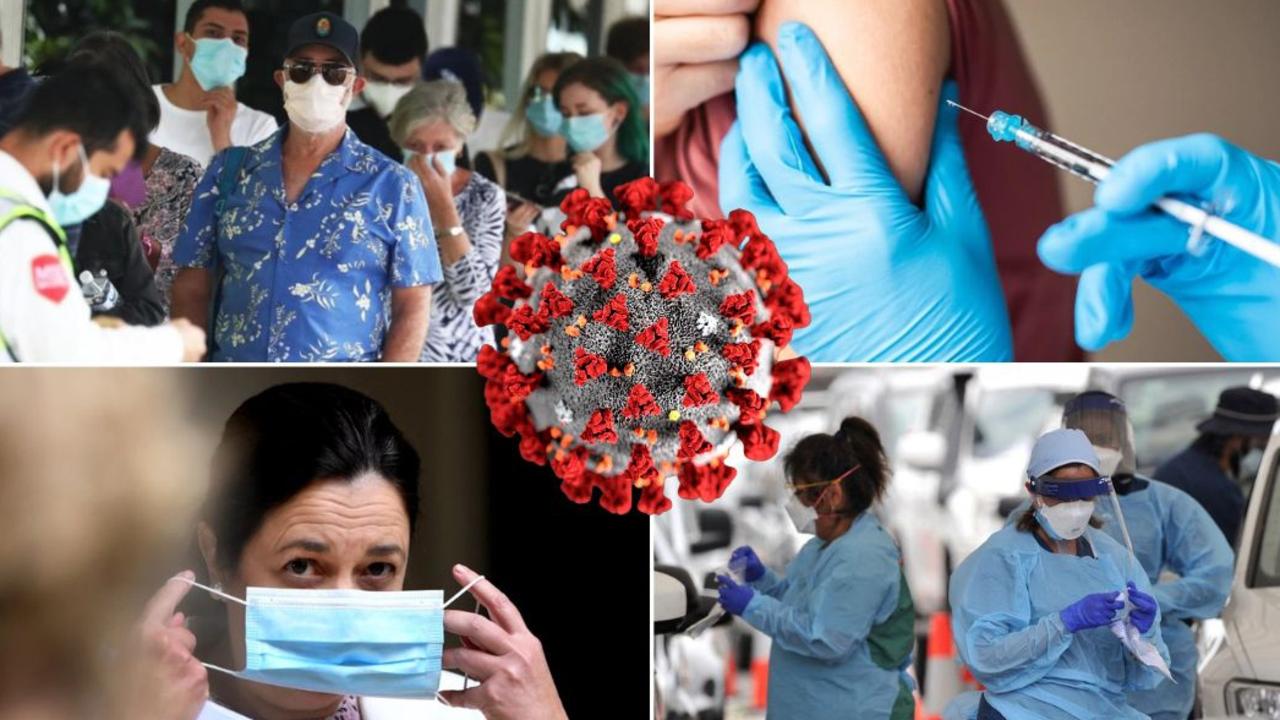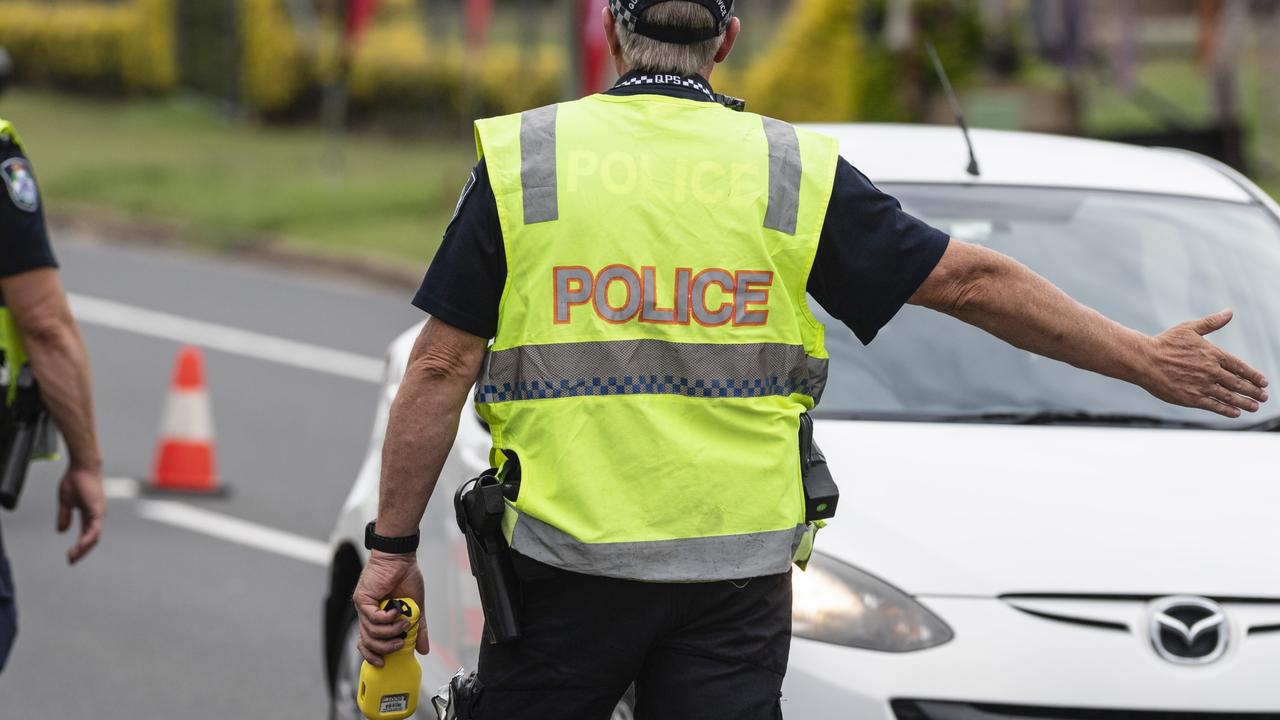Little Scholars founder Jae Fraser reveals struggle facing industry
The Federal Government’s free childcare lifeline was supposed to save the business. But centres on the Gold Coast are still facing major losses. Here’s why.

Coronavirus
Don't miss out on the headlines from Coronavirus. Followed categories will be added to My News.
They are the glue holding us together.
As normal society unravels, our childcare workers are holding fast, allowing children to learn and parents to work, sticking to staying open even as their wages fall, bridging the gap between government funding and fee relief.
But the glue is coming unstuck.
Queensland’s Little Scholars founder and managing director Jae Fraser, who has five centres on the Gold Coast, says the Federal Government’s free childcare lifeline has turned out to be tangled, and the industry is on life support.
Prime Minister Scott Morrison last week revealed his plan to help working parents during the coronavirus pandemic, announcing that about 1 million families would be eligible for gap-free childcare.
Under the plan, the Government pays 50 per cent of each centre’s turnover, as measured during the fortnight leading into March 2.
Staff payments would arguably be covered by the Jobkeeper allowance, giving each centre $1500 a fortnight per eligible staff member.
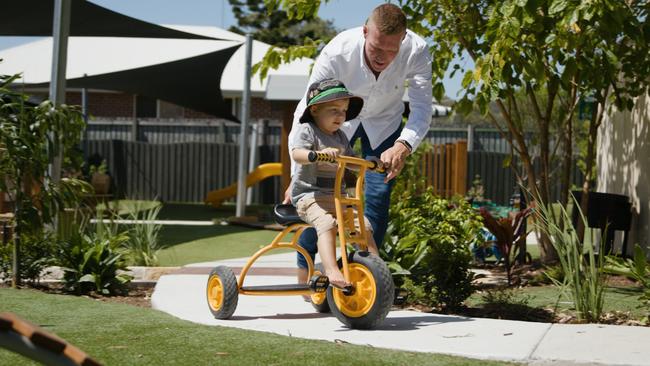
But Jae says the numbers simply do not add up for many centres, including his own – with one of his centres losing up to $20,000 a week.
“Say a centre turns over $50,000 in a fortnight, and that money goes to wages, rent and operational costs like power, water, nappies, food and so on,” says Jae, who has worked in the sector for 18 years.
“The Government is giving us 50 per cent of that revenue, as recorded in late February/early March, so in this example that’s $25,000. But the Jobkeeper allowance does not come close to covering the other $25,000. In fact, it doesn’t even cover our actual wage costs, so either we’re topping that up or staff are going without. The more staff we have, the greater the losses.
“Plus there are many staff who started after March 1 so they receive nothing, but we can’t reduce our staff numbers either as the children are still coming. The rest of our costs are the same. Rent is not reduced by 50 per cent, nor is the cost of power, water, nappies and so on.
“Even with the 50 per cent revenue payment, that’s only at the existing hourly rate cap, which is $11.98 per hour. For our centre in Brisbane city, we charge $13 per hour due to the high operational costs like rent. So really, it’s not even 50 per cent that is covered.
“This program does work for some centres, however. For those who had huge numbers of children being pulled out, 50 per cent of previous revenue is much better than the 10 per cent they were receiving. It is a lifeline for them. But for us, we have so many families who are essential workers, who still have their jobs – the previous system was actually better … the Government provided some subsidies and parents paid the gap. We minimised the costs as much as we could, but our parents could and did cover the gap. Nobody is expecting to make a profit now, obviously. It would be wrong if we did. But now we have a large loss. Now it’s the employers and employees who are paying the gap.”
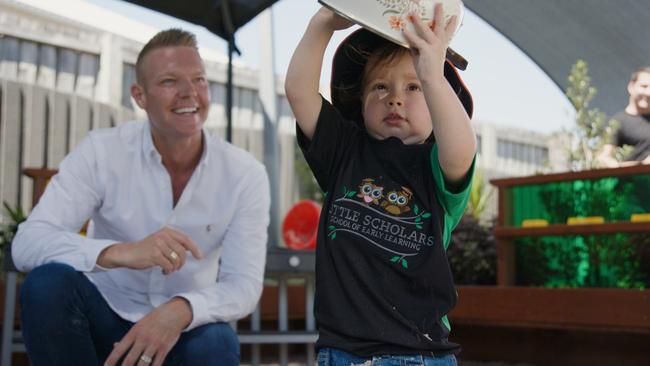
Despite the shortfalls of the funding package, Jae says he is not criticising the Government’s response.
Instead he continues to inform policymakers through his position as a board member of the Australian Childcare Alliance.
He says he continues to hold hope that the lifeline will prove to be just that. And no matter what, he refuses to close his centres’ doors because without the glue his industry provides, our healthcare and economic systems would fall apart.
“I think the Government has done a fantastic job in trying to put a package together. This is literally policy on the run and they are doing the absolute best that they can,” he says. “That’s the difficulty with our childcare system. Each state, each service provider, each individual centre is in a different position.
“Even each family is in a different position. Some were not subsidised at all, some were heavily subsidised.
“The Government may not have all of the answers, but the great thing is that they are listening. We’re in calls to ministers almost every day and they’re trying to work through it. We have real hope they will provide for some of our centres and others like us under exceptional circumstances.
“I would never expect to make a profit during this time, that would be wrong. I can accept and would expect that I will lose money, but losing thousands every week is not tenable.
“But we don’t want to lay off staff members or say no to families, especially those who are essential workers.”
Jae says he is especially worried about the Ashmore Little Scholars centre, as close to 80 per cent of its families are essential workers at the Gold Coast University Hospital.
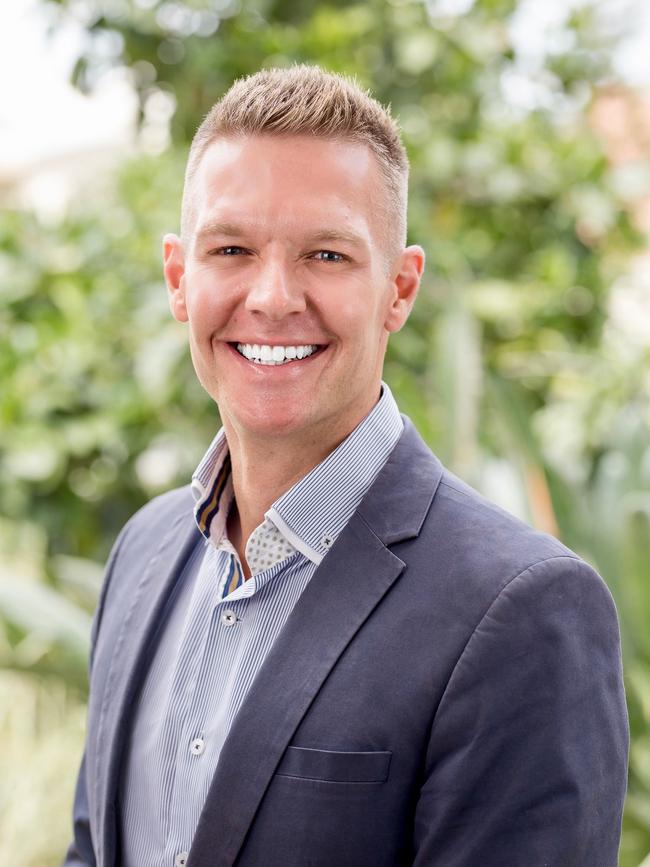
He says there is little room to reduce numbers but the centre will lose close to half a million dollars over the next few months under the current system.
“The great thing is how well everyone is working together – staff, families and the government. I know my staff are worried about their jobs and their physical health and I’m doing everything I can to make them feel safe, and they in return ask what they can do to make our business run better. It’s a tough game but we’re all on the same team. We just need to be able to stay open to support our children and our families and so that our staff can keep their jobs.
“The parents have just been amazing. I am very hands-on, I’m emailing them every few days with updates and focusing on transparency. If they understand where we’re at, they can work with us.
“We’re in a triage state right now, we’re trying to prioritise the children of healthcare workers first, then other essential workers, vulnerable children and so on. It’s a tough call, but our families are really working with us.”
Jae says while the gap-free childcare system is far from perfect, it could offer a fantastic future silver lining if we get it right.
He says it will be very difficult to wind back the fee-free system after this trial.
“I was in a national teleconference with other providers this week and we were all saying, the precedent for gap-free childcare has been set now,” he says.
“There are a lot of people in the industry pushing for this, they hold up the Finland model as an example of the benefits from that.
“In September or July or whenever this program ends, it’s going to be jarring for families to go back to paying up to $100 a day (without subsidies), especially as their jobs will not necessarily spring back to normal. I think our economy will be suppressed for a long time yet.
“Potentially it could be a great thing to have a gap-free system but it also really worries me. There would need to be a huge redesign of the package and subsidy system and to have a blanket approach across Australia will be very difficult. For example, in NSW you need four tertiary-qualified teachers, here in Queensland it’s two.
“I’d love to see a system worked out, but whoever puts their hand up to oversee and design this is in for a real challenge.
“Still, there’s no denying that if more children had more access to early learning in their first five years then Australia would be winning.”
Jae says many have criticised the Government’s interference with the childcare and early learning industry. He says the decision should be seen as economic management rather than social manipulation.
“Let’s not think of childcare and early learning as a benefit, but as a requirement for the economy to move forward. If we look after the kids, parents can work. That’s what keeps the wheels of our economy moving. In fact, there are statistics that show $1 invested in early education delivers $2 in the future. This is anything but wasted money.”
Jae says it is also important not to overlook the social implications of closing down centres. Each staff member is not just an employee but an important relationship in a child’s life, a person who provides stability and care to some of our most vulnerable.
“I worry so much about kids at some centres. I know that if those centres aren’t open, they could be in a very dangerous environment,” he says. “Speaking as a former teacher, I know I was one of the few adult males some of the children could rely on and interact with. I was their point of stability.
“For any child, our staff are there not just to help guide their early education, but to help them develop emotionally too. They learn how to relate to the world through their relationships with us and each other.
“It’s been really tough for some of the kids who aren’t coming to the centres any more, so we’ve been trying to do Zoom lessons with them and write them letters so that they know they are still part of our world and our family. Our early learning educators may not always be valued by society, but they sure are by our children, families and us.
“That’s why we need to stay open and stick together.’’
And that’s why we need the social glue of our childcare industry.


